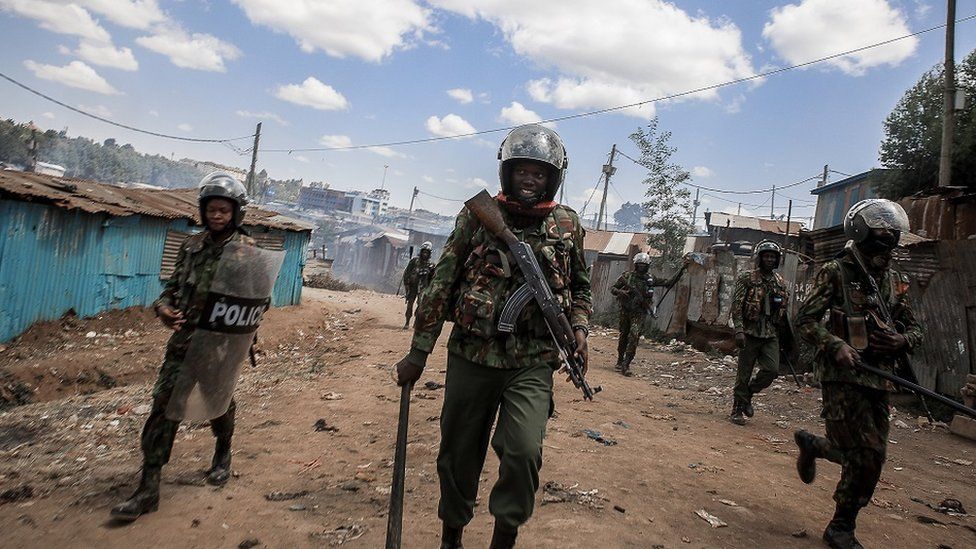-

-
-
Loading

Loading

Kenya has pledged to lead a multinational security force in Haiti to help restore order in response to a plea from Haiti's prime minister. Gang violence in Haiti has intensified following the assassination of President Jovenel Moïse in July 2021. Gangs have taken control of large parts of the country, terrorizing residents and causing numerous deaths. UN Secretary-General António Guterres has called for a robust use of force to disarm the gangs and restore order. Kenya initially proposed sending 1,000 police officers to guard government buildings and infrastructure but has now changed its plan to deploy an intervention force to neutralize the armed gangs and bring peace, security, and order. Kenya also aims to assist in rebuilding vital infrastructure and establishing a stable democratic government in Haiti. Several other countries, including Spain, Senegal, Chile, Jamaica, The Bahamas, and Antigua and Barbuda, are likely to deploy security personnel as well. The deployment of the multinational force is pending approval from the UN Security Council, but Kenya expects it to be in place by the beginning of next year. Haiti is currently facing a severe security and humanitarian crisis, with large parts of Port-au-Prince controlled or terrorized by heavily armed gangs. These gangs engage in robbery, looting, extortion, kidnapping, rape, and murder, often outgunning the local police. Their actions have disrupted public services and aid agency work, exacerbating poverty and health problems in the already impoverished nation. While Kenya's offer to intervene in Haiti has been portrayed as altruistic, some critics argue that it is an attempt to curry favor with the United States, which has promised financial support for the mission. Concerns have been raised about the ability of Kenyan police to confront the gangs in unfamiliar terrain, as well as their past record of human rights abuses. Amnesty International has documented cases of excessive use of force by Kenyan police, raising concerns about their ability to act humanely and responsibly in Haiti. Ultimately, the success of the Kenyan contingent's mission will depend on their ability to defeat the crime gangs and restore law and order, which will require close collaboration with local Haitian police and support from international partners. There are mixed views within Haiti regarding the foreign intervention, ranging from support for the force to opposition groups questioning the legitimacy of Prime Minister Ariel Henry's government and accusing Western governments of neo-colonial and imperialist interests. It is clear that the safety of innocent civilians and winning their trust will be crucial for the Kenyan police as they confront the gangs.